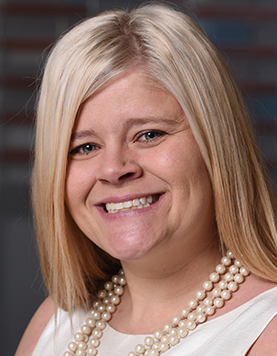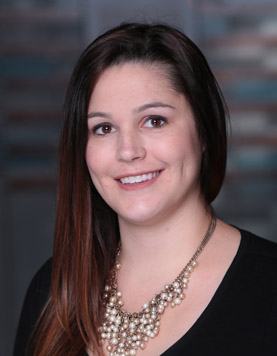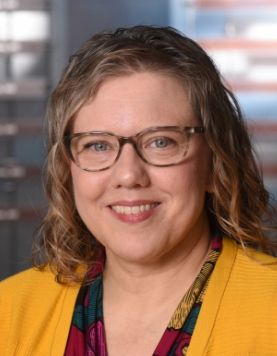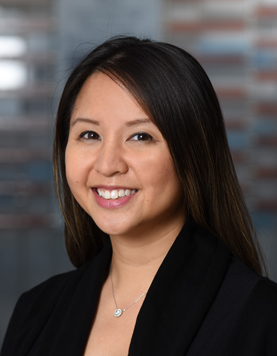bio
Grant Turek, MD is a board-certified pediatric neurologist and clinical neurophysiology specialist at Dayton Children's Hospital. Dr. Turek is no stranger to the Dayton region. He attended the University of Dayton where he completed his undergraduate degree in pre-medicine and mechanical engineering technology. After his time in Dayton, he completed his medical school education at Loyola University Chicago Stritch School of Medicine in Illinois. He then went on to complete a residency in Child Neurology, a mini-fellowship in epilepsy, and a fellowship in clinical neurophysiology at the University of Louisville in Kentucky. Dr. Turek has returned to Dayton to join pediatric neurology practice at Dayton Children's, where he aims to help children and families to overcome any roadblock to a child's growth and development. He believes that every kid deserves a happy and healthy childhood.
Dr. Turek chose to specialize in pediatric neurology because the way the brain and nervous system work is unique and inspiring. It excites him to think that while we know so much about the brain, we continue to learn new things daily. When asked why he loves working with children he said, "Their world is still so full of potential and possibility. Even children with complex medical conditions have the capacity to change the world if they have the willpower and many of them do".
schedule an appointment
If your child is an existing patient, log in to MyKidsChart to schedule directly with your provider for follow-up care.
If you are new to the Dayton Children’s neurology clinic, use the online scheduling tool below to schedule an appointment. New patient appointments must be done in person. To schedule by phone call 937-641-4000.
conditions you can schedule for:
- Headaches and migraine
- General neurology - developmental delays, numbness/tingling, weakness, ataxia (unsteady gait), hyper/hypotonia
- Movement disorders - tics, Tourette's syndrome, tremors, chorea, clonus, dystonia
If your child needs to be seen for epilepsy/seizures or another condition not listed as an option for online scheduling, please call 937-641-4000 to schedule an appointment.
movement disorders - tics/Tourette's syndrome
education and training
- medical school: Loyola University Chicago Stritch School of Medicine
- residency: University of Louisville - child neurology
- fellowship: University of Louisville - clinical neurophysiology
- board certification: American Board of Psychiatry and Neurology with special qualification in Child Neurology
awards, honors and organizations
awards
- Chair's Achievement Award with Highest Honors, 2021
- 2021 House Staff of the Year Award nominee, 2021
- Penry Pediatric Epilepsy Program Scholarship, 2021
- American Epilepsy Society 2019 Scholarship, 2019
- AAN Resident Scholarship, 2019
- Medical Student Prize for Excellence in Neurology, 2016
- S.T.A.R. Scholar, 2013
- Honor Key, 2011
publications and presentations
lectures
- I Saw a Sign: Semiology and Neuro-anatomical localization, April 2022
- Introduction to NCS/EMG, October 2021
- Journal Club: Shocking, isn't it?, April 2021
- Drugs, Exposures, and Toxins, April 2021
- Journal Club: But What Do the Squiggly Lines Tell Us?, January 2021
- What's the skinny? A Neurocutansous Disorder Review, October 2020
- Child Neurology Morbidity and Mortality Conference, September 2020
- Neurology Update: 5 Clinical Cases of Spinal Neuroimaging, August 2020
- Journal Club: Neuromuscular electrical stimulation in critically ill traumatic brain injury patients, July 2020
- Not Your Attending's Peripheral Neuropathy, July 2020
- Neurology Grand Rounds: CoVID-19 on the Brain, May 2020
- Pediatric Grand Rounds: CoVID-19 on the Brain, May 2020
- What's Going on with Your Face: A Neoplastic Story, April 2020
- Journal Club: Scn8a Antisense Oligonucleotide Is Protective in Mouse Models of SCN8A Encephalopathy and Dravet Syndrome, February 2020
- Journal Club: Double Blind Randomized Placebo Controlled Study of Trofinetide in Pediatric Rett Syndrome, February 2020
- A Foray into Developmental Delay: A review of the evaluation and management of developmental delay, October 2019
- Journal Club: Effectiveness of Levetiracetam Monotherapy in Pediatric Patients with Epilepsy, October 2019
- Journal Club: Nusinersen in Later-Onset Spinal Muscular Atrophy, August 2019
- Body on Fire: A Lethal Case of Acute Immune Demyelinating Polyneuropathy, June 2019
- Continuum Lectures: A Review of the Latest AAN recommendations on Weakness, April 2019
- Continuum Lectures: A Review of the Latest AAN recommendations on Brain Death, April 2019
- Continuum Lectures: What's the Status - A Review of the Latest AAN recommendations on Status Epilepticus, April 2019
- Questionable Reality: A Case of Failing Mentation in Thalamic Stroke, February 2019
- Let's Get LITT: A review of laser interstitial thermal therapy, February 2019
- Walking Occam's Razor: A Case of Idiopathic Intracranial Hypertension, October 2018
- Baby, Come Back: A Discussion Regarding Preventable Hospital Readmissions, October 2017
- Signed Neurons: A Review of the Current Understanding of Acute Disseminated Encephalomyelitis, December 2016
poster presentations
- Gene Replacement Therapy Unmasking Occult Hepatitis Infection, April 2021
- Cyclical Hypothermia and Morbidity Associated with Clobazam Therapy, January 2021
- Electrical Status Epilepitcus in Sleep that adds to the Clinical Spectrum of 17p11.2 Duplications seen in Potocki-Lupski Syndrome, December 2020
- New-onset Binge Eating Disorder After Anterior Temporal Lobe Resection with Amygdalohippocampectomy, December 2020
- Sinister Mutations: A unique presentation of an inherited POL-G mutation with asymptomatic familial carriers, October 2020
- Status Dystonicus: A case of Deep Brain Stimulation as a Diagnostic Tool, October 2020
- When Hoofbeats are Zebra's: A Case of Viral Myositis, July 2018
- Bridging the Gap: Use of Neural Conduit to Restore Facial Function, July 2013
- A Pilot Study of Muscle Nerve Muscle Grafting for Facial Reanimation in Rats, July 2013
publications
- Seizure semiology, localization, and the 2017 ILAE seizure classification, January 2022
- Gene Replacement Therapy for Spinal Muscular Atrophy Unmasking Occult Hepatitis C in Pediatric Patient, October 2021
- Complexities of Caring and Transitioning Care for Patients With an Intellectual or Developmental Delay, March 2020
- Muscle-Nerve-Muscle Grafting for Facial Reanimation in Rats, January 2017
ratings and reviews
Question Rating Breakdown
Distribution
Comments
Very patient kind understanding
Dr. Turek was fantastic with my son! He picked up very quickly on his personality and explained what he felt was going on in a simple way for us to understand. He took his time and took in listening to everything we had to say about our history with his tics and things we have tried and allowed us to be a part of the decision making for a treatment plan.
I am very pleased with our visit with this provider. He was very thorough with the examination. He was also personable with my child and they discussed similarites in their hobbys. He definitely loves what he does and I am glad we are with hime through my child's journey of finding out what is going on.
Dr. Turek is excellent with my daughter. He takes time to listen to the parent and he also engages to ask her whether or not she has any questions or concerns that haven't been brought up by the parent. We have only seen Dr. Turek for just over a year after her previous provider at the Navy Base, I'm sorry, the Air Force Base retired, but we have been very pleased and appreciate Dr. Turek and the care he has given to our daughter. He is excellent. We could not ask for better. Thank you.
Load more testimonials...











27 comments